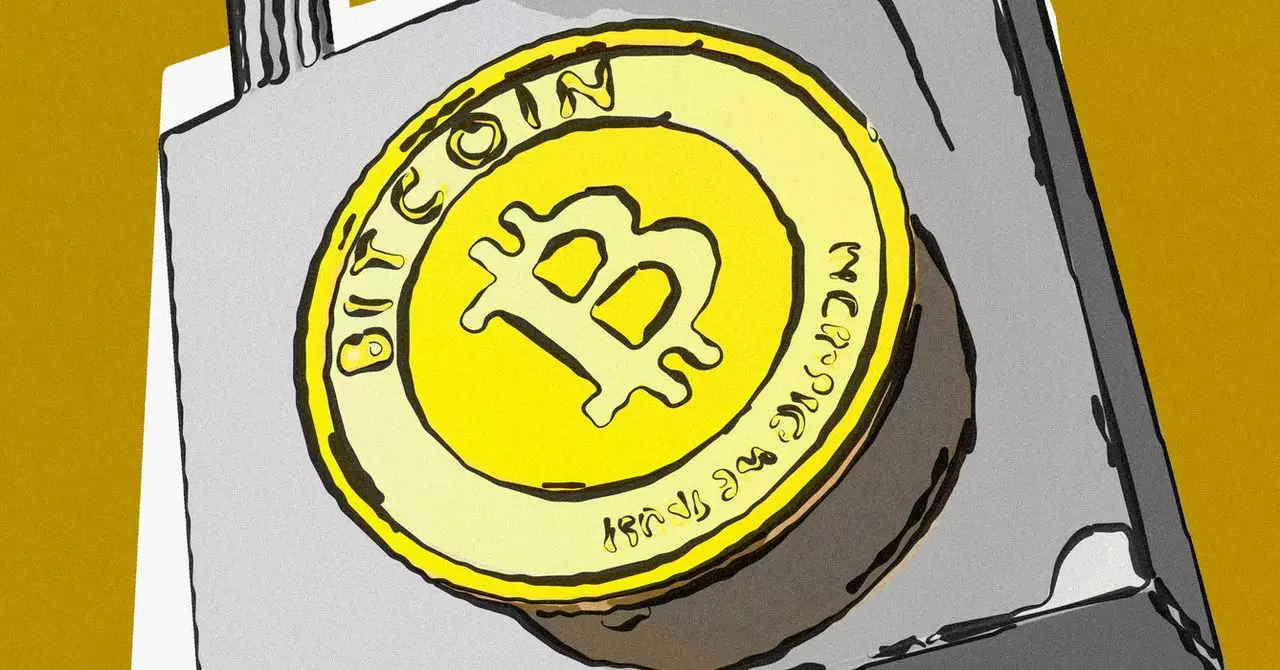In a world grappling with soaring inflation and waning confidence in fiat currencies, the U.S. government’s proposal to create a reserve of Bitcoin has ignited both enthusiasm and skepticism. The notion, championed by advocate El Salvador and other crypto defenders, positions Bitcoin as a potential safeguard against the depreciation of the dollar. El Salvador’s President, Nayib Bukele, previously declared Bitcoin a legal tender in his country, asserting that it could empower nations rich in resources or those suffering from economic crises. Sacks, a prominent figure in this discussion, claims that holding Bitcoin would serve as a “digital Fort Knox,” cultivating a sense of security for investors and everyday citizens alike.
The excitement among cryptocurrency enthusiasts follows a perception that such a reserve emphasizes the legitimacy of the crypto industry in the eyes of traditional finance. The underlying premise here is that by committing to retain Bitcoin, the government signals a protective gesture towards this digital asset. However, this enthusiasm masks a range of economic complexities that could unravel the entire proposition.
The Fragile Foundations of the Reserve Concept
Economists remain wary of the rationale supporting this newfound ambition for Bitcoin reserves. Critiques center around the notion that Bitcoin’s future price appreciation is not a given. Fundamentally, the speculation that Bitcoin will inevitably rise hinges on two dubious claims: first, the presumption that the asset is devoid of volatile fluctuations, and second, the belief that the government will adeptly manage its holdings without causing a market collapse. This latter point reveals a glaring oversight; the potential mismanagement of Bitcoin sales could lead to a chaotic downturn in market value—something that could harm more than simply those who invest in the currency.
Moreover, the implications of hoarding Bitcoin versus investing in income-generating assets cannot be overlooked. Critics highlight the significant opportunity costs associated with holding Bitcoin within a governmental portfolio. Unlike stocks and bonds, Bitcoin does not yield dividends, which raises substantial questions about the long-term financial wisdom of maintaining large reserves in a non-productive asset. George Selgin, an economist critical of the reserve plan, argues that there lacks a strong, logical basis for not leveraging these assets more effectively to benefit taxpayers instead.
Political Underpinnings and Ethical Dilemmas
Political motivations further complicate the discourse surrounding Bitcoin reserves. Lawmakers have expressed concerns regarding potential conflicts of interest, specifically pointing to the historic investments made by Sacks and others in the cryptocurrency space. There’s a pressing need for public officials to prioritize the interests of their constituents rather than their financial portfolios. As Senator Elizabeth Warren aptly pointed out, “Lawmakers deserve strong leaders who will prioritize the public interest ahead of their own bottom lines.” This skepticism highlights a break from trust, which could taint the operation of such reserves right from their inception.
The notion of states and even foreign governments following suit by creating their own crypto reserves also raises eyebrows. If the federal initiative proves successful or is widely accepted, it stands to reason that local entities will seek to replicate this framework, as suggested by experts like Hillmann. States like Texas and Ohio have already begun to pursue legislative paths enabling the acquisition of Bitcoin, potentially paving the way for an expansive movement that could give Bitcoin an unprecedented foothold in public finance.
The Long Shadow of Lobbying and Market Integrity
The political landscape entwined with the establishment of Bitcoin reserves may become a daunting battleground. Critics warn that once these reserves are created, powerful lobbying efforts from the crypto industry may prevent any realistic attempts to utilize the assets effectively. The concern is profound; if market forces that rallied to establish these reserves also stand against any sale of these assets in the future, it could lead to stagnation, trapping governments into holding potentially dormant assets.
The interplay between cryptocurrency and regulation continues to echo within the global economic framework. The U.S. remains a pivotal player in this landscape; thus, its decisions regarding Bitcoin influence international perspectives. If these reserves embed deeply into the fabric of U.S. financial policy, it could have unintentional ripple effects on how other nations approach similar innovations. Ultimately, while the proposition of a Bitcoin reserve might initially enchant, the emerging complications may prove to be a more flexible, contested terrain than blockchain proponents aspire for it to be.

